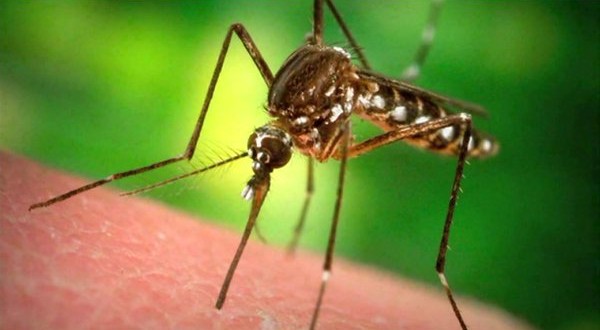The first confirmed case of Zika virus has been detected in an Indiana resident.
Indiana Health officials say the patient, who is not pregnant, had recently traveled to Haiti. The unidentified resident suffered from a mild illness that did not require hospitalization, and they’ve since made a full recovery.
State Health Commissioner Jerome Adams, M.D., M.P.H., said the health department is providing guidance to local health officials and providers in anticipation of additional travel-related cases in Indiana.
“The risk of contracting Zika virus here in Indiana remains low, but we know that many residents are concerned,” Dr. Adams said in a news release. “We urge anyone visiting affected areas to take steps to avoid mosquito bites.”
There is currently an epidemic of Zika virus infection occurring in Mexico, the Caribbean and Central and South America. The virus is spread to people primarily through bites from an infected Aedes aegyptior Aedes albopictus mosquito.
The CDC has also reported isolated cases of spread through unprotected sexual contact with an infected person.
Most people who are infected with Zika virus won’t develop symptoms, but those who do are most likely to experience mild illness that can include fever, rash, joint pain and conjunctivitis (pink eye).
There is no vaccine or treatment for Zika virus. Patients who think they might have Zika virus infection are asked to contact their health care providers and to avoid mosquito exposure for the first week of their illnesses to reduce the likelihood of transmission through mosquito bites.
The CDC has advised pregnant women to avoid traveling to areas where Zika virus has been detected because of concern about birth defects. It also recommends that men who have a pregnant partner and reside in or have traveled to an area of active Zika virus transmission abstain from unprotected sexual activity for the duration of the pregnancy.
About the Virus
The Zika virus epidemic is primarily affecting Mexico, the Caribbean and Central and South America. It’s usually spread through bites from an infected mosquito. The CDC has also reported isolated cases of spread through unprotected sex with an infected person.
Most people who are infected won’t develop symptoms, but mild illness including fever, rash, joint pain and pink eye can happen. The CDC advises pregnant women to avoid traveling to areas where Zika virus has been detected, as it is linked to birth defects.
Patients who think they might have Zika virus are asked to contact their health care providers and to avoid mosquito exposure for the first week of their illnesses to reduce the likelihood of transmission through mosquito bites. It also recommends men who have a pregnant partner and live in or have traveled to an area of with Zika virus to abstain from unprotected sex for the duration of the pregnancy
Officials say there is no vaccine or treatment for Zika virus.
Prevention Tips
The CDC has advised pregnant women to avoid traveling to areas where Zika virus has been detected because of concern about birth defects.
If you choose to travel to Zika-affected areas, follow these tips:
- Wear long-sleeved shirts and long pants to reduce the amount of exposed skin.
- Stay in places with air conditioning or that use window and door screens to keep mosquitoes outside. Sleep under a mosquito bed net if air conditioned or screened rooms are not available or if sleeping outdoors.
- Use EPA-registered insect repellents. When used as directed, these insect repellents are proven safe and effective even for pregnant and breastfeeding women.
- Look for products containing DEET, picaridin, oil of lemon eucalyptus, or IR3535 as the active ingredients.o Always follow the product label instructions and reapply as directed.
- If you are using sunscreen, apply sunscreen before applying insect repellent.
- Treat clothing and gear with permethrin or buy permethrin-treated items.
- Do NOT use permethrin products directly on skin. They are intended to treat clothing.
“Pregnant women should not travel to areas where Zika virus transmission is occurring. Everyone else must weigh the risks against the benefits of travel and make the choice that feels right for them,” said Dr. Jennifer Brown, public health veterinarian for the Indiana State Department of Health. “People who choose to travel can reduce their risk of Zika virus infection by taking rigorous precautions to prevent mosquito bites.”
Agencies/Canadajournal
 Canada Journal – News of the World Articles and videos to bring you the biggest Canadian news stories from across the country every day
Canada Journal – News of the World Articles and videos to bring you the biggest Canadian news stories from across the country every day



